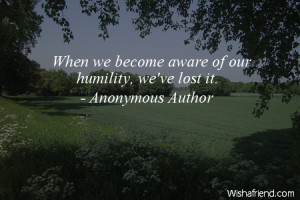 Yesterday’s reading from Sirach addresses us thus: “My child, conduct your affairs with humility. Humble yourself the more, the greater you are. And you will find favor with God.” So, how can one develop humility without becoming proud of how humble you are?
Yesterday’s reading from Sirach addresses us thus: “My child, conduct your affairs with humility. Humble yourself the more, the greater you are. And you will find favor with God.” So, how can one develop humility without becoming proud of how humble you are?
In practical everyday terms how can we recognize this amazing quality of humility? How can you develop this wonderful trait? We know we can quickly spot what it is NOT. It is not judgmental, does not have room for vanity. The one who is humble is not self-consumed, is not a door mat, is not rough with others but treasures and respects the value of all persons.
Benedict, in the Prologue and opening chapters of the Rule, prescribes humility as an essential quality of monastics in community. He speaks of the necessity for humility for the superior and sub-prioress, the artisans, the cellarer, the readers, visiting clerics and relationships with each other in community. He helps us recognize the role of humility in perfect love when we make satisfaction for mistakes, for broken dishes and tools, in our acceptance of what the cook offers and what the superior supplies for the members, when we consciously blend voices with others in communal prayer and graciously receive guests who share our monastic space.
Let’s look at three proven hindrances to growth in humility.
PRIDE – which focuses on self rather than others. Listen to yourself. How often do you start a conversation with “I”?
INSECURITY and/or OVER-CONFIDENCE – Both are forms of unhealthy self-centeredness and oppose humility because these people spend too much time “navel gazing” – examining themselves. Can you graciously digest criticism and suggestions without scrambling to justify your action or point a finger at what someone else did? Do you smile and accept a compliment without downplaying its value with a comment like: “This old dress? I got it long ago at Daystar.” or “Oh, it was nothing. There’s an app that does all the work.” “The project turned out OK but it wasn’t my best.”
SELFISHNESS – As long as you focus exclusively on your own perceived personal needs and desires – forget the idea of humility – it will only be a distant dream. Remember Benedict’s advice: “Pursue what you judge better for someone else, love humbly and prefer nothing whatever to Christ.”
The practice of humility begins in little everyday ways:
+ The words we speak: no boasting, bragging or pushing your opinion down others’ throats.
+ The way you treat others: not looking for choice places at table or seeking to rub shoulders with only the rich and famous but treating each person as one of value.
+ How you treat yourself. The humble person values herself and her abilities. She does not spoil herself, is not self-centered; refrains from superficial behavior, is not obsessed with her appearance, her likes and dislikes, her opinions or material possessions.
What begins as a single humble act multiplies, and becomes a life-long, positive habit that impacts not only your own life, but the lives of those around you.
So, in real life what does humility look like?
- Humble people handle challenging situations with a sense of peace because they RESPOND rather than REACT to life’s challenges.
- The humble person focuses on service to others and not her own problems, weaknesses, health or likes and dislikes.
- Humble people are good at networking because they attract others by making them feel comfortable, wanted and valued.
- Humble people are wise because they listen well, do not speak impulsively and value what words they do share.
- Humble persons are perceived as trustworthy because their goals are not self-motivated.
- Humble persons create loyalty because they take pleasure in the successes of others.
It goes without saying that practice of humility requires sacrificing pride and moving out of your “comfort zone.” It takes a complete a turn-around from self-centeredness. Humility is not popular in today’s world so dare to be different. The benefits are worth any cost: healthier relationships, mutual respect, wisdom and a quiet peace.
~by Sister Roberta Bailey, OSB




